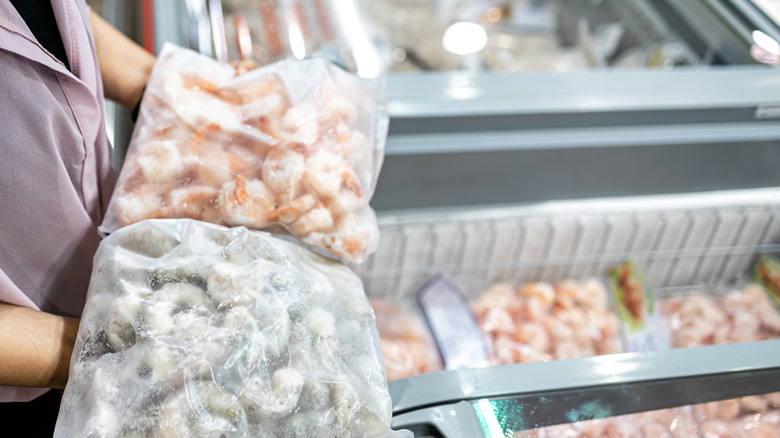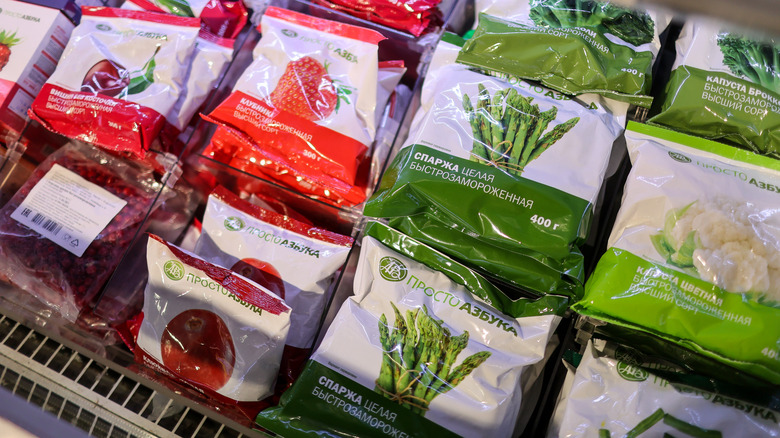What 'Fresh Frozen' Actually Means On Food Labels
Food labels can be confusing. But while we tend to dissect the terms listed on refrigerated foods more readily, like "best by" labels, it's easy to assume that frozen food is much more straightforward. When picking up your bag of ice-cold peas or spinach, you may see the words "fresh frozen" on the package. The term may sound like a contradiction, but what does it actually mean?
According to the Code of Federal Regulations, "fresh frozen" and "frozen fresh" mean "the food was quickly frozen while still fresh (i.e., the food had been recently harvested when frozen)." Food that has been blanched before freezing can also fall under the fresh frozen umbrella. However, this term differs from "quickly frozen," which means the product has been subjected to a sub-zero Fahrenheit blast-freezing method that gets food ice-cold as fast as possible. And of course, "fresh" food means it's unprocessed, not frozen, and "has not been subjected to any form of thermal processing or any other form of preservation."
Why you may want to buy fresh frozen food
In general, the idea behind fresh frozen food is that it's locked in at peak freshness. The quality of fresh produce may begin to deteriorate during transport and as it sits on grocery store shelves, but fresh frozen items remain in the same state as when they were just harvested. For instance, after being picked, apples can sit around for up to a year before they make it into your shopping cart. However, their antioxidants may start to deteriorate after only three months.
On the flip side, a study in the National Library of Medicine shows that the vitamin and mineral content in a variety of produce, including carrots, broccoli, and strawberries, is the same (if not higher) in frozen versus fresh options. But for optimal nutrition, you may want to search for fresh frozen food specifically. The more time that passes after an item is harvested, the more the nutrients start to deteriorate. Plus, keeping bags of fruits and veggies in the freezer for when you need them helps cut down on food waste and is just plain convenient.

